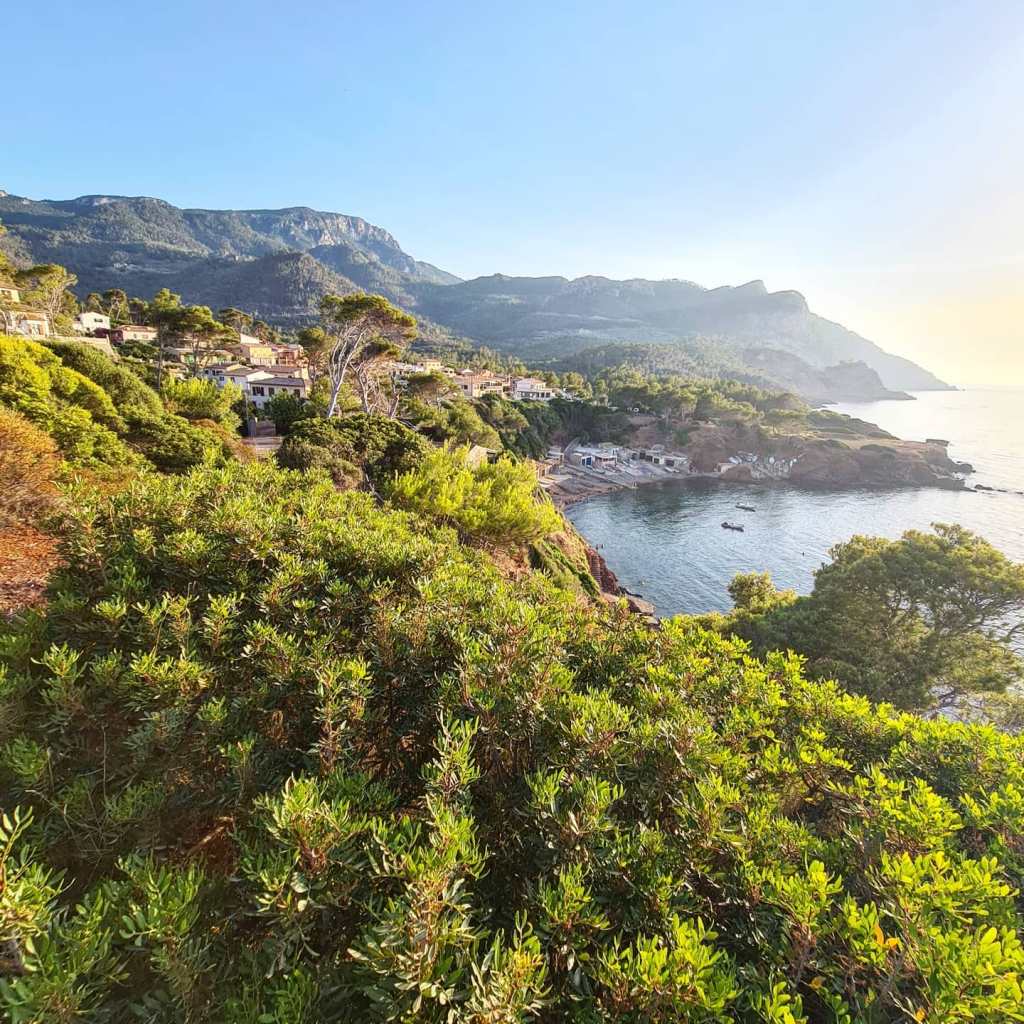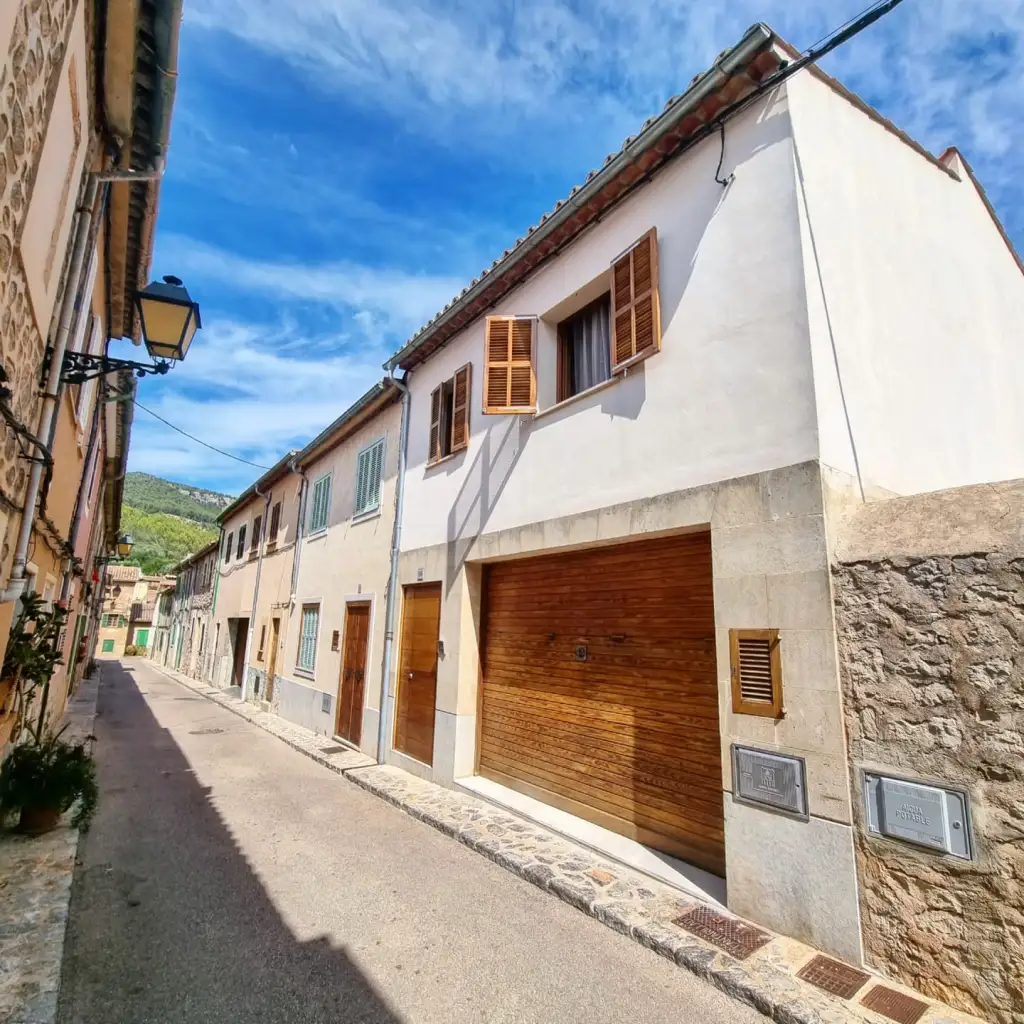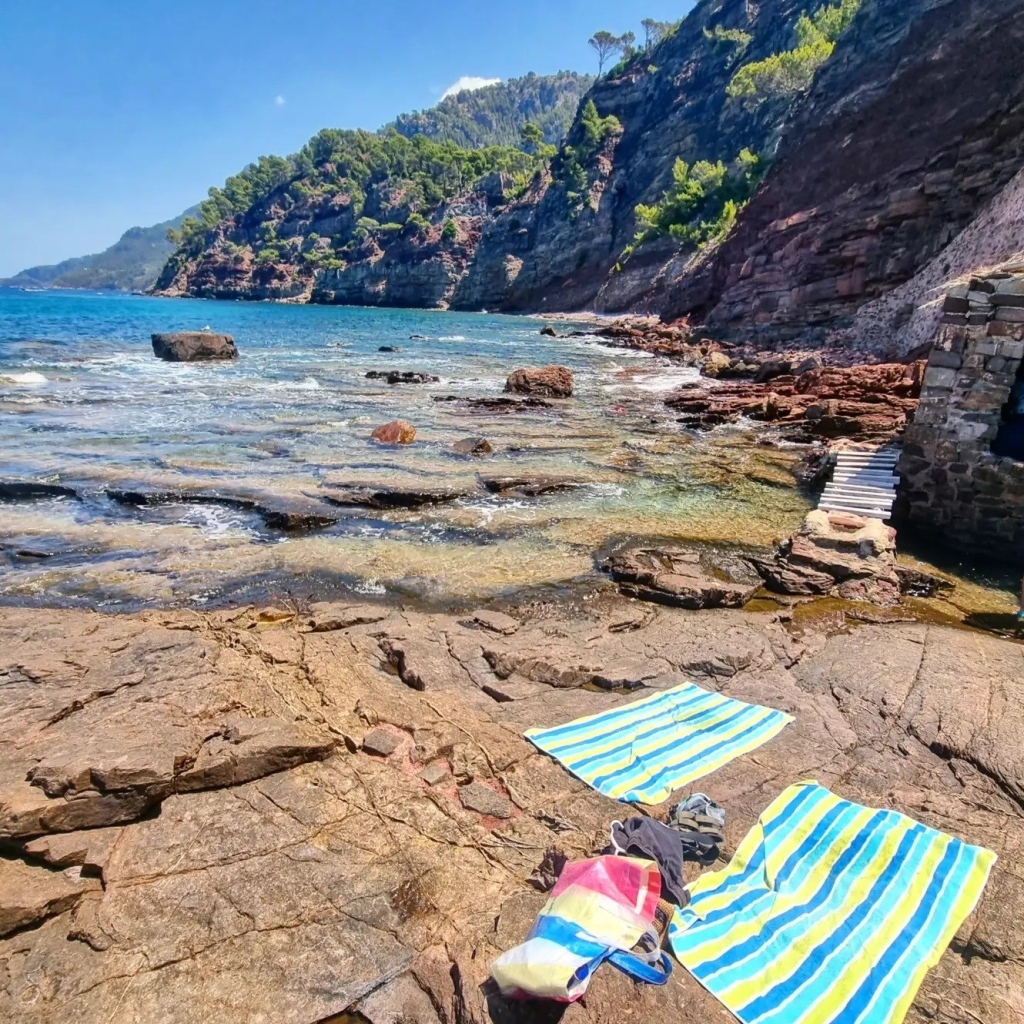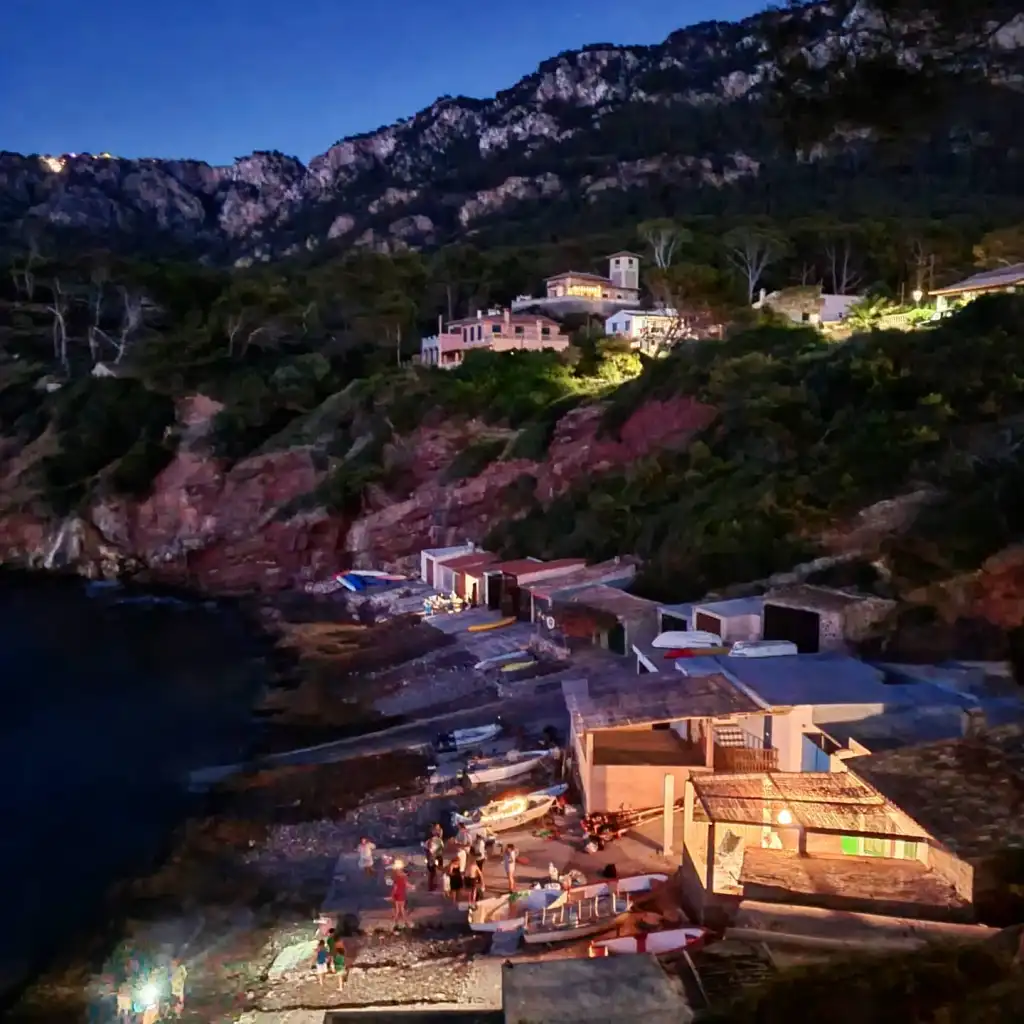[ 10:52 Friday 20 August 2021 – Esporles, Mallorca ]
Exactly twenty years ago today, I packed up my home in London and moved to the island of Stromboli. I planned on staying two months but ended up living there two years.
During that period on Stromboli I evolved the most productive working routine I’ve discovered to date. Each day comprised alternating periods of two-to-three hours’ intensive working, punctuated by half-hour periods swimming in the sea (in summer) or walking (in winter). I found that this rhythm enabled me to get a lot of work done, remaining consistently creative and without feeling tired at the end of the day. Coming back to London in 2003 I found it painful making the transition to working a regular eight-hour day in the office again.
A few days after arriving in Port D’Es Canonge last month, I realised that I’d automatically switched back into my Stromboli working pattern. The main difference now is that my routine includes several video calls a day, which didn’t exist in 2001. It took me a while to find a comfortable way to accommodate this new type of remote collaboration. My solution involves having a fixed point in the house where I do all video calls, and dressing slightly more smartly. I also found it best to avoid going directly from a swimming break into a video call, as the transition feels too abrupt. Another evolution from my 2001 working pattern is that I now keep my laptop on London time. Whenever I’m working, I shift myself psychologically into the London time zone. This avoids any sense of dislocation when I’m speaking with the team, and makes scheduling meetings easy. My phone, on the other hand, is set to local Spanish time.

From our house in Port D’Es Canonge it is a five minute walk to the little semi-circular cove, with dinghies pulled up on one side and a row of boathouses lining the rear of the beach. From here the wild rocky beach of Platja de Son Bunyola is ten minutes walk to one side, with the even wilder beach of Es Berganti fifteen minutes’ walk the other way, at the foot of a spectacular cliff. Most evenings a fierce katabatic wind appears without warning and whips around the trees and houses for half an hour before disappearing as suddenly as it came. Other than this wind and the ever-present cigales, the most prominent sound in the evening is the laughter and cries of Mallorquin children playing in the street.
After a month in Port D’Es Canonge, at the start of August we moved eight kilometres inland to a terraced house in the village of Esporles, high in the Tramuntana mountains. We appreciated the luxury of having shops and restaurants within walking distance, and being excused the ordeal of Port D’Es Canonges’ four kilometres of single-track road carved into the mountainside, with its horrendous sequence of twenty-nine hairpin bends.

However there is something magical about Port D’Es Canonge and despite its inconveniences we both miss it. Therefore on Monday we are packing our bags once again and moving back to Port D’Es Canonge, where we will remain until the end of September. After that the picture is hard to predict.
In 2001, as a citizen of the European Union, I was free to rent a house on Stromboli and stay for as long as I wanted. However in 2021 the situation is somewhat different. As a citizen of the United Kingdom, beyond the end of the Transition Period on 31st December 2020, I cannot remain in Spain more than three months without a visa.

When I researched the process last year it seemed straightforward so I gave it little thought. But when we arrived and I commenced the process to apply for an “Entrepreneur Visa”, the proverbial rabbit hole opened at my feet.
At this point I have had to obtain a document from the UK police stating I have no criminal record, get the document stamped with a “Hague Apostille”, get the stamped document translated into Spanish, get the translation stamped as well, request a certified copy of my degree certificate from Cambridge University, provide all my payslips for the past two years, get an official letter from The Trampery stating that I am an employee, provide a complete business plan for the project, provide a certificate proving I have purchased health insurance, submit photocopies of every page in my passport. As a passably intelligent English speaker there is no possibility I could have completed the process unaided. Alejandro has been heroic, but even for him as a native Spanish-speaker it has been an ordeal.
The greatest challenge was getting an appointment with the Spanish Consulate in London. By default every email to the contact address they provide is met with a lengthy and impenetrable automated message, explaining that the Consulate is not willing to reply to any question whose answer can potentially be found somewhere on the internet.

I would probably have given up after receiving this message three times, but fortunately Alejandro was cunning enough to apply for a different document, which elicited a human response, so he could then plead with them for an appointment, which has now been scheduled for 27th August.
If the Spanish Government doesn’t grant me an Entrepreneur Visa, we’ll come back to London at the end of September and work out a different route. The whole experience has been a bit disheartening, and drives home the appalling cost of the British population’s decision to leave the European Union. But despite the vicissitudes of the visa process, we feel privileged to be here and I haven’t regretted our decision for a micro-second.
: c :